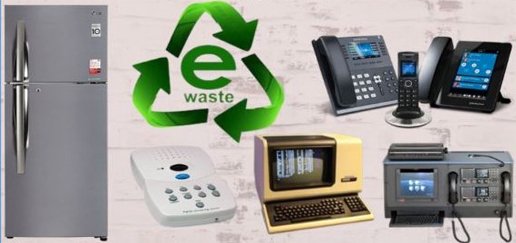+91 94442 42432, +91 4435690278
info@airaqualabs.com, airaqualabs@gmail.com

EPRA for Electronic Products
Introduction:
EPR stands for Extended Producer's Responsibility. EPR Certificate is mandatory for Indian Manufacturer / Importer of product for E-waste management. EPR Authorization is given by the Central Pollution Control Board (CPCB) under MOEFCC, Government of India. With EPR India authorization, the manufacturer / importer of electronic and electrical products has been given the responsibility to control E-waste by the products after expiry of their lifetime.
How to get EPR Authorization in India?
The manufacturer / importer of IT & Electronic products have to provide documentary evidence for E-waste management plan and agreement with Recycling agency.
Brand Liaison provides complete support in EPR Registration by managing documentation and formalities in getting EPR Certificate.
EPRA for Plastic Products
Introduction:
Registration of Producer, Importer & Brand Owners through Plastic EPR Portal as per Plastic Waste Management Rules 2016.
On February 16, 2022, the Ministry of Environment, Forest and Climate Change (MOEF&CC) issued an amendment to PWM Rules Plastic Waste Management Amendment Rules) in order to enforce Extended Producer Responsibility as per rules and guidelines set out in Schedule II. According to Clause 10.1 of the Guidelines, producers, importers, and brand-owners (PIBOs) must follow the regulations and standards outlined in Schedule II. According to Clause 10.2, the Standard Operating Procedure for registration and the action plan pro-forma will be completed by CPCB. Pollution Inventory and Reporting Officers shall obtain EPR registration from CPCB if they operate in more than two States/UTs; whereas the remaining PIBOs have to be registered with the appropriate SPCBs/PCCs based on Rules set forth in this document.
In order to comply with the amendment notification, CPCB has initiated development of a portal that includes the following modules;
- EPR Registration for PIBOs
- Registration of PWPs
- Trading & Settlement of EPR obligations by PIBOs
- Filing of Annual Returns by stakeholders
- Levying of Environmental Compensation
- Third Party Audits
- Training/ Capacity Building of stakeholder
EPRA for Battery Waste
EPR REGISTRATION FOR BATTERY WASTE MANAGEMENT
Introduction:
In a few years, the demand for batteries has grown exponentially. There are numerous reasons for the high demand for batteries, a few of them because the government is supporting EV-based businesses as it wants to reduce their dependence on fossil fuels. Nowadays, it is easy to find the use of batteries everywhere and linked to massive battery wastes around the globe.
Keeping the safe environment responsibilities in mind the Indian government implemented the battery waste management Rules in August 2022.
On 22 August 2022, the Ministry of Environment, Forests, and Climate Changes published a notification for managing the waste batteries by replacing the Battery (management & handling) rules of 2001, to ensure the environment-friendly management & handling of waste batteries.
The most important highlights of the New Batteries Waste Management and Handling Rules Include :
- 1. EPR (Extended Producer Responsibility): The government has mentioned that the producers and importers of batteries come under the Rules and are liable to enroll in the collection & recycling of waste batteries for reuse purposes.
- 2. Centralized EPR Portal:The Indian government has introduced a new online portal, making it easier for producers and recycling agencies to exchange EPR Certifications.
- 3. Batteries Waste Recycling Standards:As per the new rules, the government has specified a minimum percentage recovery of materials from waste batteries. Eventually, this will also help in the innovation of waste battery recycling technologies.
- 4. Strict Rules for Violations:If any importer or producer is found violating the EPR (Extended Producer Responsibilities) for waste batteries, has to face heavy penalties as environmental compensation & the collected fines will be put for the collection and recycling of waste batteries.
Government Guideline for Battery Waste Management (BWM) 2022
APPLICABILITY:
These rules apply to all entities involved in the collection, segregation, transport, and refurbishment and recycling of used batteries of all types, including manufacturers, distributors and consumers. These rules cover all types of batteries, including portable, electric vehicle, automotive and industrial batteries.
These rules do not apply to batteries used in equipment related to the protection of essential security interests, such as weapons, ammunition, war material and batteries specially designed for military purposes; or equipment intended to be launched into space.


